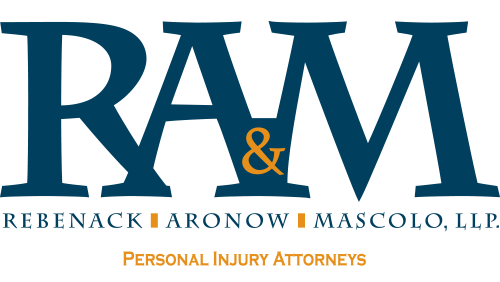What Truck Accident Lawyers Can Do for Your Claim During COVID-19
We are living in extraordinary times—the country is in lockdown, more than 30 million Americans are unemployed, and the number of U.S. COVID-19 deaths is expected to surpass 100,000. It would be safe to say that the coronavirus pandemic has changed all our lives for the coming years. This is especially true for accident lawyers who represent the victims of negligent truck drivers in their claim during COVID-19.
How the Pandemic Has Impacted Truck Drivers
We should start by acknowledging that most truck drivers have been true heroes during the COVID-19 crisis. Truckers have been driving day and night to deliver food to restock stores, emergency supplies to provide critical services, and medical equipment to aid doctors in the battle against the virus.
Because of a change to regulations, however, truckers may be forced to drive more than the regular number of hours without taking a break. To make matters worse, they don’t have many rest spots on the road as most of the rest areas have closed due to the pandemic.
As a result, it should come as no surprise to learn that more truck drivers are dealing with fatigue and distractions while on the job during the pandemic. However, the silver lining here is that the roads have been empty thanks to the lockdowns in the different states. The number of collisions on the road has gone down. Nevertheless, accidents are still liable to happen.
The Legal System Has Also Been Impacted by the Pandemic
Like everything else in the country, our legal system has felt the weight of COVID-19. For one thing, the New Jersey District Court is prohibiting any individual who has been diagnosed with COVID-19 or in close contact with a potential carrier from entering a courthouse. Additionally, civil and criminal trials that were supposed to take place in New Jersey before May 31 have been postponed until further notice.
This is not to mention that the courts have suspended the majority of in-person proceedings. The New Jersey judiciary has been pushing an electronic filing system to compensate.
Chief Justice of the New Jersey Supreme Court Stuart Rabner has sought to resume the proceedings of some sessions by issuing an omnibus order on April 24. However, the order stated that municipal court sessions may continue starting May 11 on the condition that they are carried out by phone or video.
What Does All of This Mean for Victims of Truck Accidents?

With all these changes taking hold of the country, the victim of a trucking accident may be wondering how this could affect a case, especially if they choose to file a suit. From a proceedings standpoint, things are bound to take more time than usual. Also, depositions, interviews, and meetings will all be done via videoconference. From a substantive point of view, taking legal action will be a bit trickier.
Truck accidents hinge on two main factors—establishing fault and demonstrating damages. In other words, the plaintiff has to show that the truck driver or applicable carrier was negligent and that this negligence caused the accident. The plaintiff also has to show how the accident impacted their life adversely.
The Federal Motor Carrier Safety Administration, the governmental agency responsible for regulating the trucking industry, has taken extraordinary measures to make sure the country is well-supplied during these difficult times. In addition to suspending the hours of service rules, which dictate how many hours a truck driver may remain behind the wheel before having to take a mandatory break, the FMCSA has issued a “regulatory relief” order for medical supply shipments.
In other words, the FMCSA has suspended a large portion of the trucking rules applicable to commercial trucking operations so long as the truck in question is hauling medical equipment. For instance, one of the suspended rules dictated what the qualifications of a truck driver had to be. Suspending this rule means that carriers are no longer legally obligated to place a qualified individual behind the wheel of a truck carrying medical supplies. Another rule that was temporarily suspended pertained to the “required brake systems,” which means that even though many trucks out there could have non-compliant brakes, carriers aren’t legally culpable.
As a result of these suspensions, judges will determine accountability in a very different way than they would have just a few months ago. Fatigue and overwork may no longer be enough to establish fault, and shoddy brakes may still not constitute grounds for culpability if the truck in question was carrying medical supplies.
What Can a Truck Accident Lawyer Do for You?
If you or someone you know has been a victim of a truck accident, you’re probably wondering what the legal process will look like during the pandemic. Here is what a truck accident lawyer can do for you:
- An attorney can reach out to clients and witnesses and interview them. The interviews would be carried out via videoconferencing technology.
- To get all the details necessary for your case, an attorney can get a copy of the police crash report. This can be done online.
- An attorney may email record retention letters to individuals working in the FMCSA. As part of the process, the lawyer will keep proof of both delivery and collection. Basically, this is an email requesting that all pertinent records and evidence be maintained and preserved for the lawsuit.
- Your attorney may also ask to see the records of the truck carrier. Every carrier operating on the interstate is required to keep records. Without these records, a carrier is liable to be hit with sanctions during a lawsuit. In fact, these sanctions may include the court siding with the plaintiff and compelling the carrier to be held fully accountable for the accident. This is the best way to ensure that both the carrier and the truck driver were following the regulations set by the FMCSA. These records include the driver qualification file, the driver logs, and drug and alcohol tests. By now, you should see how the temporary suspension of the regulations might affect the findings from this phase.
- When requesting the records, your attorney may send a “spoliation letter” to the carrier. A “spoliation letter” is a document your attorney sends to the opposite party asking them to preserve all relevant evidence to the case. Furthermore, the letter can be specific by requesting the company to maintain specific records or pieces of material evidence such as the truck involved in the accident. However, since the new regulations change what makes truckers or their carriers culpable, your lawyer may decide to modify the “spoliation letter” as they see fit. In very extreme cases, your lawyer could e-file a temporary restraining order to preserve a key piece of evidence.
- Once all the relevant documents have been gathered, your attorney may choose to e-file your lawsuit. Due to lockdown measures, a lawyer will not be able to file it in person for the coming few months.
- As mentioned earlier, your claim during COVID-19 may take longer than usual. During your case, most of the depositions, conferences, hearings, and meetings will be held over video conferencing technology.
Legal Assistance Is Still Available for Your Claim During COVID-19
We are currently living in unprecedented times filled with uncertainty. So, if you have any more questions about personal injury law and filing a claim during COVID-19, please do not hesitate to reach out. At Rebenack Aronow & Mascolo, L.L.P., we’re set up in multiple locations throughout New Jersey. We have offices in New Brunswick, Somerville, and Freehold. However, given the current climate, we would also be more than happy to take your call. Contact us at (732) 394-1549 for a free review of your case.


